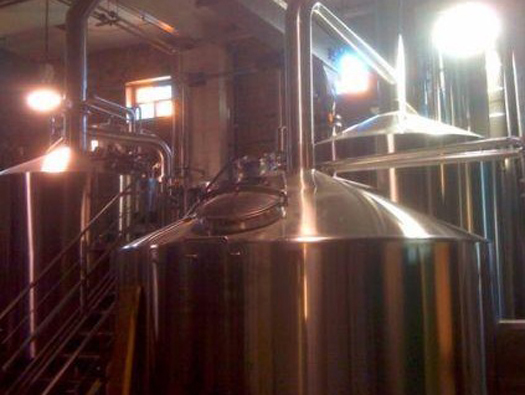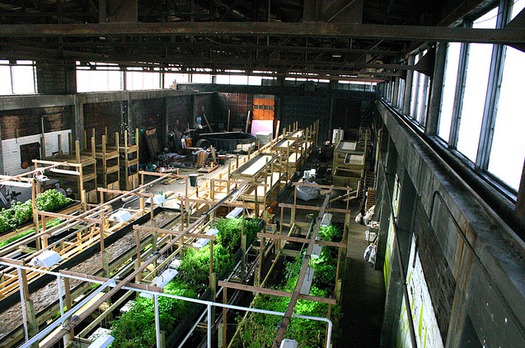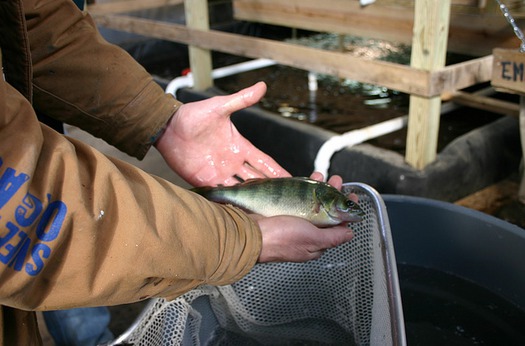
When Jimmy Carbone, co-creator of The Good Beer Seal, was considering running for mayor of his old hometown in Haverhill, Massachusetts, he began to ponder possible new uses for industrial buildings that had fallen into disuse. Could small resource-sharing breweries be a centerpiece of a regional economic development? To find out, he asked his peers in craft brewing, green building, engineering, and microbial science for advice. This intriguing discussion continues at an event at Brooklyn Brewery (pic above) on July 19, called Shoe Town to Brew Town.
The environmental impacts of brewing are significant. They are energy intensive operations and use lots of water. By the same token, many brewing “wastes” have the potential to be re-used as raw materials in another product or process. Fermentation lends itself to the production of biogas or methane, for example; breweries could be a modest power centers for the local industrial ecology. The New Belgium Brewery in Colorado uses 40 percent less energy per barrel of output than the average American brewer because, from hops in to beer out, every stage of the firm's brewing process has been designed for greater efficiency and the re-use of waste.
Brewing wastes can also enrich food chains. The mash leftover from fermenting process, which is microbially rich, can be fed to pigs, or fish (such as perch) or oysters and mussels. Sweet Water Organics in Milwaukee, for example, is not a brewery but it does occupy a once abandoned warehouse in which one floor now houses aquaponic systems for growing Perch, and another floor is used to grow greens.
“Shoe Town to Brew Town” is on July 19, 7:30-10:00 PM at the Brooklyn Brewery in Williamsburg, Brooklyn. Tickets are $40 per person (mainly because this is a benefit event for the Gaia Institute.) 


